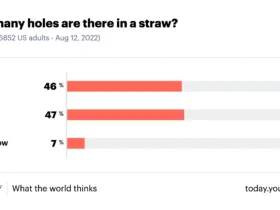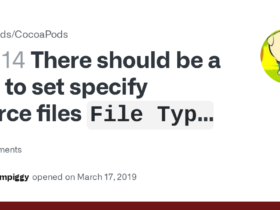This guide provides clear and comprehensive information about Brook Taube Wells Notice, explaining its significance, related terms, and steps to take if you receive one. Designed for easy understanding, this article aims to help you navigate the complexities of this important notice.
What is Brook Taube Wells’s Notice?
The Brook Taube Wells Notice is a formal notification related to the usage and management of groundwater resources. It is typically issued when there are concerns about the impact of good usage on surrounding water supplies or property rights. Understanding this notice is crucial for individuals and businesses involved in groundwater extraction.
When a Brook Taube Wells Notice is issued, it often arises from local government or regulatory bodies tasked with ensuring that water resources are utilized responsibly. The notice serves as a warning that the current use of a well may be affecting the groundwater levels or quality, thus necessitating a review or adjustment of water extraction practices. This can occur in areas where groundwater resources are limited or where there are competing demands for water use.
In essence, the Brook Taube Wells Notice functions as a safeguard for both the environment and the rights of various stakeholders in the community. Whether you’re a homeowner with a private well or a business relying on groundwater for operations, receiving this notice should prompt immediate attention to your water usage practices.
Why is the Notice Important?
Receiving a Brook Taube Wells Notice is significant as it can indicate potential legal issues regarding water rights and usage. This notice is a way to ensure that water resources are managed responsibly, protecting the interests of both property owners and the community.
The importance of this notice extends beyond mere compliance with regulations. It highlights the delicate balance of water rights, especially in areas where water is a precious resource. Ignoring such notices could lead to more severe consequences, including legal action, fines, or restrictions on water use. Thus, it is imperative to treat these notifications with the seriousness they deserve.
Additionally, the Brook Taube Wells Notice may involve assessments that affect the sustainability of local ecosystems. Groundwater plays a vital role in maintaining wetlands, rivers, and lakes, which are essential for wildlife habitats and recreational activities. Therefore, by adhering to the guidelines set forth in the notice, individuals and organizations contribute to the overall health of their environment.
Key Terms You Should Know
Familiarizing yourself with specific terms related to the Brook Taube Wells Notice can help clarify your understanding of the notice and its implications.

Wells
Wells are structures created to access groundwater. The construction and maintenance of wells must comply with local regulations to prevent over-extraction and contamination. Each well has a specific purpose, such as residential use, agricultural irrigation, or industrial applications. Understanding the type of well you have can influence how you respond to a Brook Taube Wells Notice.
Water Supply
Water supply refers to the availability of groundwater resources for various uses, including residential, agricultural, and industrial purposes. Ensuring sustainable management of these resources is vital. The notice may indicate that current practices threaten the water supply, prompting necessary changes to protect this valuable resource.
Property Rights
Property rights are legal rights to use and manage property, including access to water resources. Understanding your rights can help you navigate issues arising from a Brook Taube Wells Notice. Property rights related to water can be complex, varying by location and existing laws. Consulting with legal experts can provide clarity on how your rights are affected by the notice.
What Happens After You Receive a Notice?
After receiving a Brook Taube Wells Notice, it is essential to review the notice carefully to understand the implications for your well usage. You may need to provide documentation or respond to the notice within a specified timeframe.
Typically, the notice will outline specific concerns raised by regulatory authorities. It may request information regarding your well’s construction, its depth, the amount of water extracted, and how this extraction impacts surrounding areas. Failure to respond adequately or in a timely manner can result in penalties or restrictions on your ability to use your well.
It’s advisable to document all communications related to the notice and maintain detailed records of your water usage. This proactive approach can aid in addressing the notice effectively and protecting your rights as a property owner.
How to Respond to the Notice
When responding to a Brook Taube Wells Notice, you should gather all relevant information regarding your well and water usage. It is advisable to consult with legal or water rights experts to ensure that your response is appropriate and timely.
Your response should include a clear statement addressing the concerns raised in the notice. If the notice questions the sustainability of your water extraction practices, you may need to present evidence demonstrating compliance with local regulations. This can involve submitting reports on water levels, usage data, or modifications made to your well.
In some cases, you might need to engage in discussions with local water management authorities to negotiate a resolution. Maintaining an open line of communication can be beneficial in these situations, allowing for collaborative solutions that satisfy regulatory requirements while considering your needs.
Frequently Asked Questions
Here are some common questions regarding the Brook Taube Wells Notice.

What should I do if I get a notice?
If you receive a Brook Taube Wells Notice, take it seriously and consult with professionals to understand your options and responsibilities. Ignoring the notice could lead to more significant legal and financial issues down the line.
How can I find more information?
You can find more information through local government websites, legal resources, or by contacting water rights organizations. Many states have dedicated resources for residents facing issues related to water rights and well management.
Who should I contact for help?
For assistance, consider reaching out to a legal expert in water rights or a local government office that handles water resource management. They can provide guidance tailored to your specific situation and help ensure that you comply with any requirements set forth in the notice.
Understanding Your Rights
It is crucial to understand your rights concerning water usage and property management. Familiarizing yourself with local laws and regulations can empower you to make informed decisions regarding your water resources.
In the context of a Brook Taube Wells Notice, understanding your rights helps you navigate the complexities of water law. You have the right to challenge a notice if you believe it is unfounded or if the terms are unreasonable. However, this requires a thorough understanding of the law, and legal counsel can significantly aid in this process.
The Bottom Line
The Brook Taube Wells Notice is an important document that can have significant implications for groundwater usage. Understanding its contents and responding appropriately can help you protect your rights and ensure sustainable water management.
By staying informed and proactive, you can effectively manage your water resources while adhering to legal requirements. Whether you’re a homeowner or a business owner, understanding the intricacies of the Brook Taube Wells Notice can empower you to navigate potential challenges effectively.














Leave a Reply